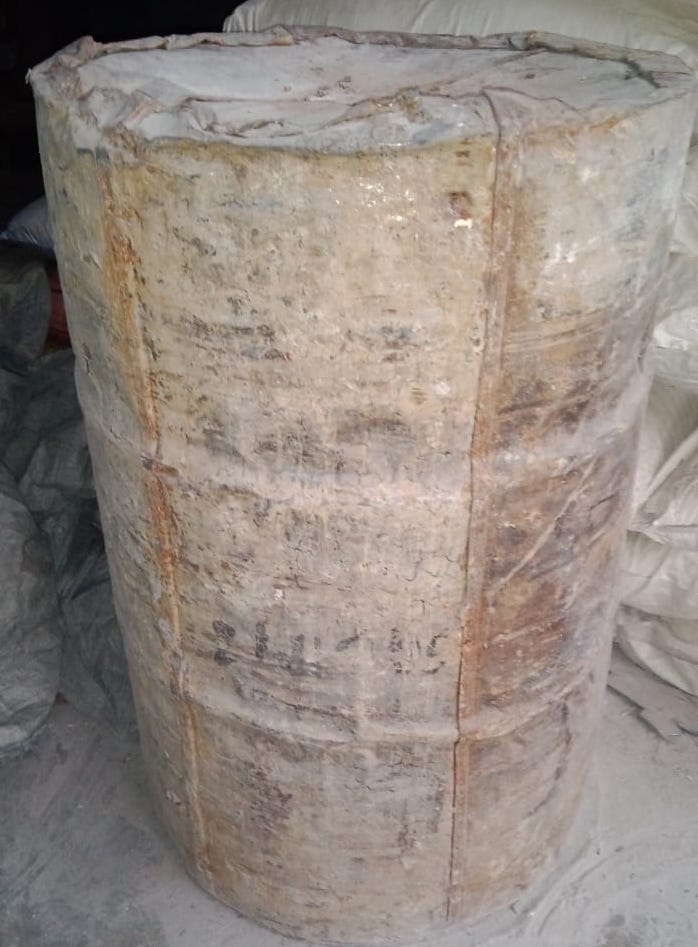
Wood Resin ( Biroza)
Rosin is brittle and friable, with a faint piny odor. It is typically a glassy solid, though some rosins will form crystals, especially when brought into solution.[3] The practical melting point varies with different specimens, some being semi-fluid at the temperature of boiling water, others melting at 100 °C to 120 °C. It is very flammable, burning with a smoky flame, so care should be taken when melting it. It is soluble in alcohol, ether, benzene and chloroform.
Rosin consists mainly of abietic acid, and combines with caustic alkalis to form salts (rosinates or pinates) that are known as rosin soaps. In addition to its extensive use in soap making, rosin is largely employed in making varnishes (including fine violin varnishes), sealing wax and various adhesives. It is also used for preparing shoemakers’ wax, for pitching lager beer casks, and numerous other purposes such as providing backing surfaces to tin ware, copper ware, or even silver and gold vessels when embossing or engraving them. Its relatively low melting point, and firm solid form allows liquid rosin to be poured into the vessel, and when cooled allows embossing or engraving of the vessel without deforming the vessel – even if it has a skin which is quite thin. Afterwards, the object can be reheated in an oven, and the rosin poured out for reuse. Any remaining rosin film can easily be rinsed away with alcohol or other solvents.
Rosin is also sometimes used as internal reinforcement for very thin skinned metal objects – things like silver, copper or tin plate candlesticks, or sculptures, where it is simply melted, poured into a hollow thin-skinned object, and left to harden.

